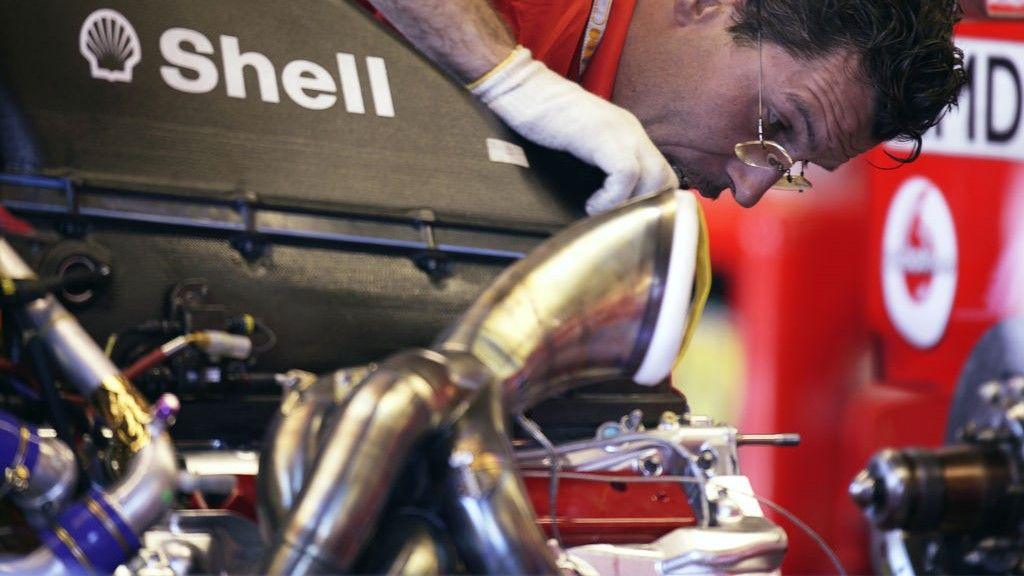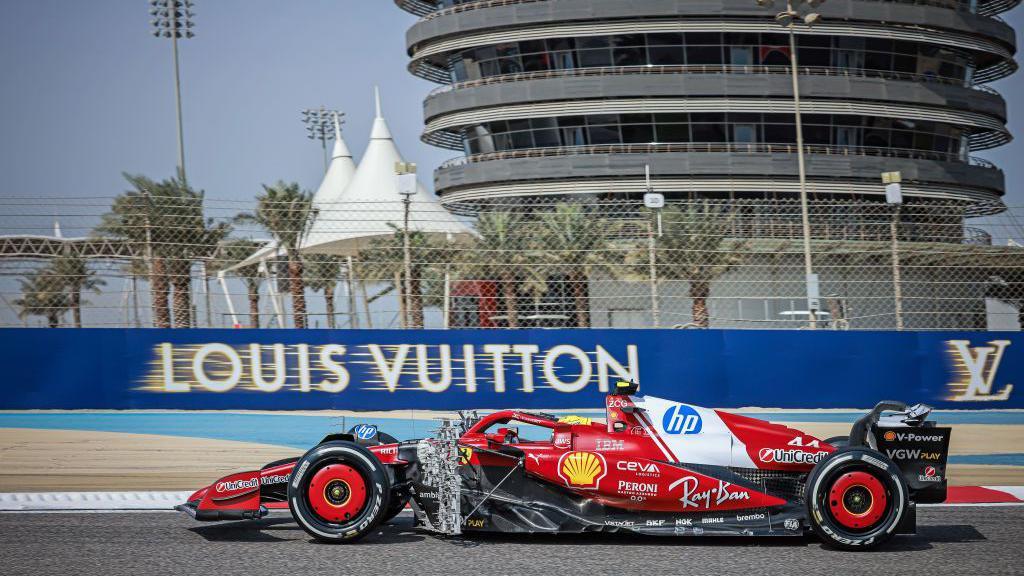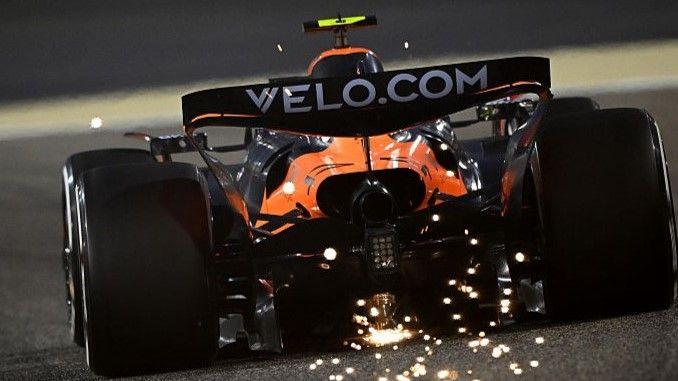F1 bosses reject V10 engine return

V10 engines will not make a return to the sport
- Published
Bahrain Grand Prix
Venue: Sakhir Dates: 11-13 April Race start: 16:00 BST on Sunday
Coverage: Live radio commentary of practice and qualifying online and BBC 5 Sports Extra; race live on BBC Radio 5 Live. Live text updates on the BBC Sport website and app
Formula 1 bosses have recommitted to next year's new engine rules, rejecting a proposal to reintroduce V10 naturally aspirated engines in the near future.
Future options for engines were discussed at a meeting at the Bahrain Grand Prix between F1, governing body the FIA and the engine manufacturers in the context of a push from FIA president Mohammed Ben Sulayem for V10s running on sustainable fuels.
Of next year's engine suppliers, Red Bull and Ferrari were in favour of the V10 proposal but Mercedes, Honda and Audi were all opposed.
Bosses will continue to consider the direction of F1's engine rules at subsequent meetings, but Mercedes, Honda and Audi are all committed to hybrid being a part of the sport in the future.
A statement from the FIA said it had been agreed at the meeting that "electrification will always be a part of any future considerations" and that "the use of sustainable fuel will be an imperative".
The 2026 regulations retain 1.6-litre V6 turbo hybrid engines but simplify their hybrid systems while increasing the proportion of total power provided by the electrical part of the engine from 20% to about 50%, as well as using fully sustainable fuels.
There have been concerns that the new engines, which have required the introduction of complex aerodynamic rules to guarantee the correct level of energy harvesting, could negatively impact the racing.
The meeting discussed a variety of possible solutions for the future of F1 engines, an FIA spokesperson said, including V6s and V8s as well as V10s.
But it was agreed at the meeting that the focus should be on the success of the new rules, which are scheduled to run from 2026 until 2030.
The idea of changing the engine formula before 2031 remains open to discussion.
There is also a focus on reducing cost and complexity in the engine rules.
A spokesperson for Audi said: "Our aim is to help shape a sustainable and future-oriented form of motorsport that leverages cutting-edge technologies, benefiting not only F1 but also Audi's broader technological development which we see reflected in the 2026 power unit regulations.
"Audi remains fully committed to entering Formula 1 from 2026 onwards, with power unit technology built around three key pillars: highly efficient engines, advanced hybrid electrification, and the use of sustainable fuels."
The FIA statement said that the aim of the meeting was to "to seek cost-effective solutions to safeguard the long-term sustainability of the sport and the business of F1".
It added that the FIA had "firmly committed to the 2026 regulations", which had "attracted new power-unit manufacturers to the sport, underlining that for the 2026 cycle the correct technical path has been chosen".
McLaren mistakes & Tsunoda vindication: What to know ahead of the Bahrain Grand Prix
Related topics
- Published12 April

- Published10 April

- Published11 April
